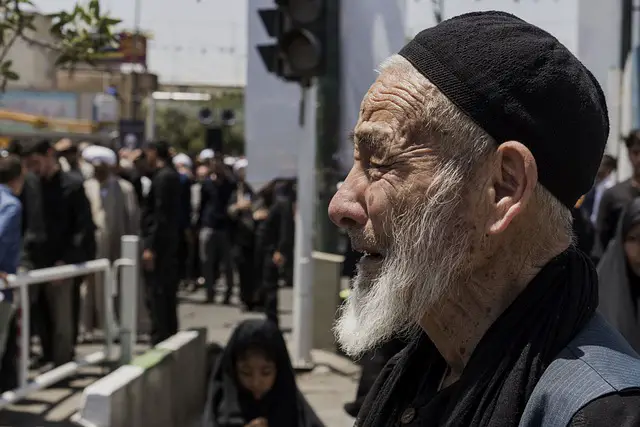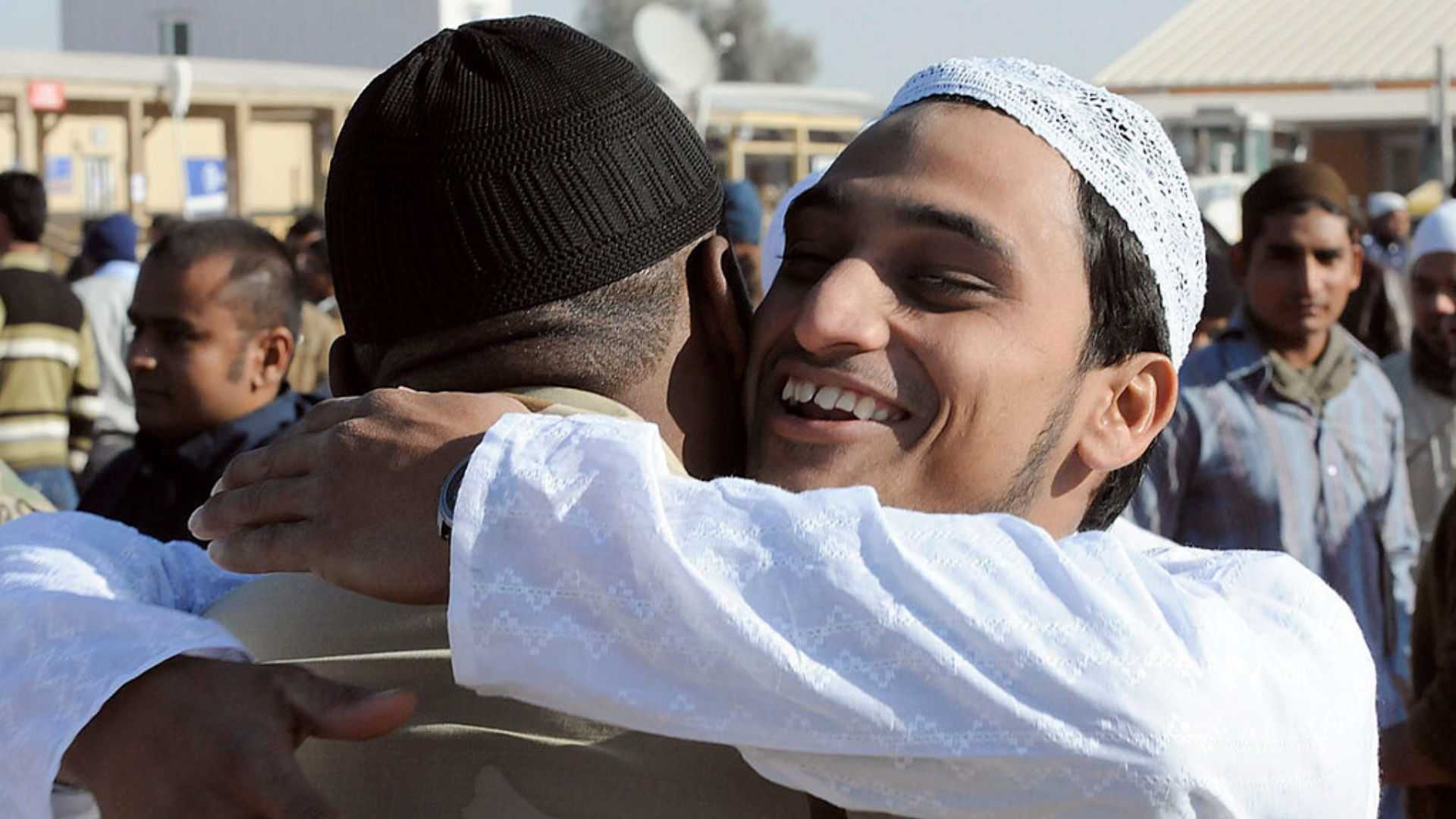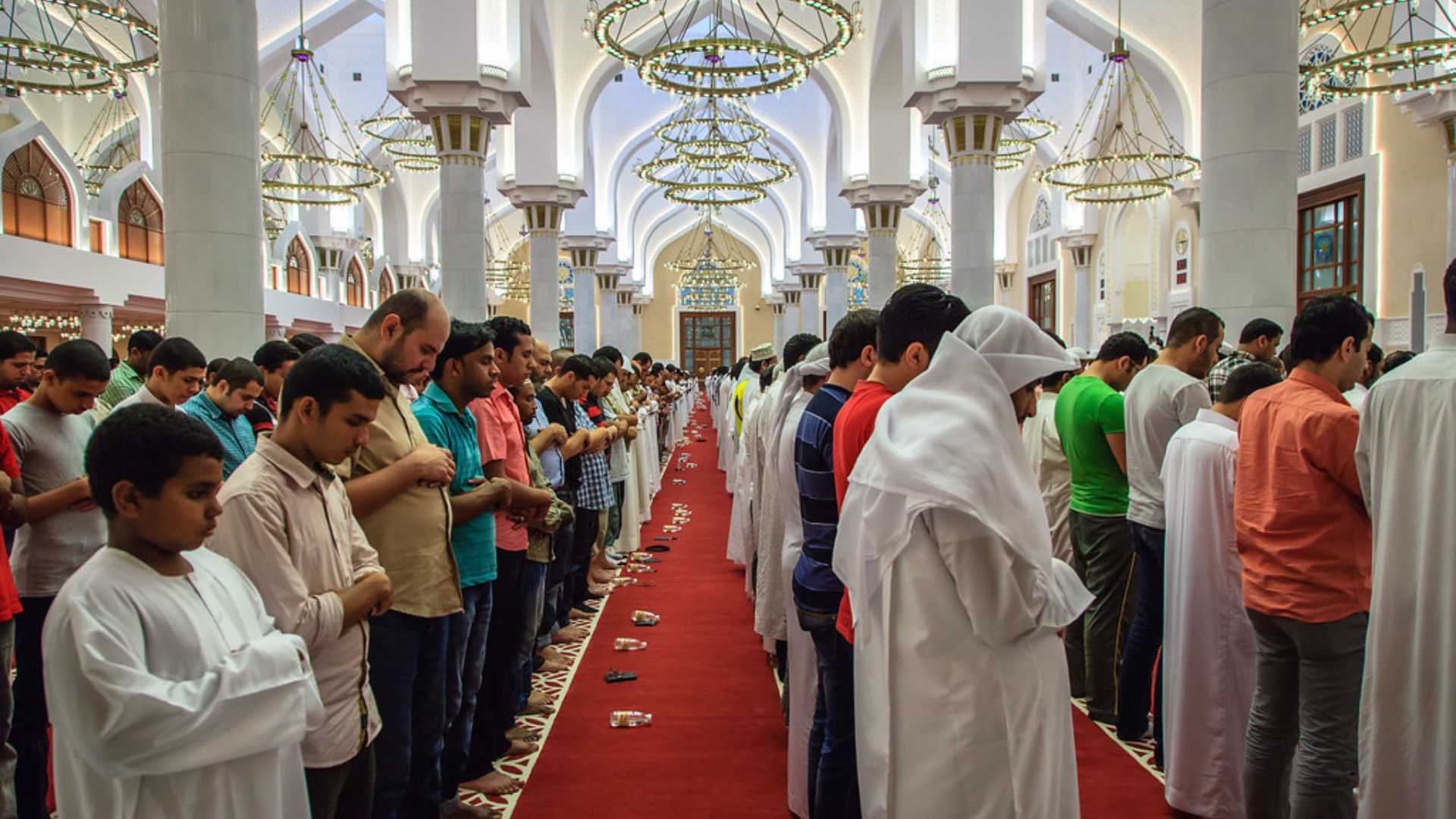Moaning, groaning, or crying in prayer is acceptable whether it be out of fear of Allah or for any other reason (such as an excruciating pain or injury or worldly loss), it doesn’t matter. The Qur’anic verse that says “When the verses of the Most Merciful were recited to them, they fell in prostration and weeping.” is the foundation for this. This verse is all-inclusive and refers to someone who is praying.
Abdullah ibn ash-Schikhir says: “I saw the Messenger of Allah praying and his chest was ‘buzzing’, like the buzzing of a cooking pot, due to crying.” This is related by Ahmad, an-Nasa’i, Abu Dawud, and at-Tirmizhi. The latter classifies it as sahih.
‘Ali reports: “There was no horseman among us at the battle of Badr save al-Miqdad ibn al-Aswad. I saw that not one of us was standing save the Messenger of Allah who was praying under a tree and crying until dawn.” This is related by Ibn Hibban.
The incident that took place during the Prophet sallallahu alehi wasallam’s fatal sickness is described by Hazrat ‘Aisha. Prophet Muhammad (PBUH) said: “Order Abu Bakr to lead the people in prayer.” ‘ Aishah responded: “O Messenger of Allah, Abu Bakr is a very soft-hearted man and he cannot control his tears, and if he recites the Qur’an, he cries.” ‘ Aishah later admitted: “I said that only because I hated that the people should blame Abu Bakr for being the first to take the place of the Messenger of Allah.” Prophet Muhammad (SAW) said: “Order Abu Bakr to lead the people in salah. You, women, are like the companions of Yusuf.” Ahmad, Abu Dawud, Ibn Hibban, and at-Tirmizhi, who refer to it as sahih, all narrate this. It has been established that it is OK to cry during prayer since the Prophet insisted that Abu Bakr lead the salah when it became clear that he would get overwhelmed with emotion.
As ‘Umar offered fajr prayers and recited Surah Yusuf, and when he came to the verse “I expose my distress and anguish only unto Allah,” he raised his voice in crying. Al-Bukhari, Sa’id ibn Mansur, and ibn al-Munzhir all narrate this. The argument that crying in prayer renders the salah ineffective if it results in a sound from the mouth, regardless of whether it is motivated by fear of Allah or not, is refuted by ‘Umar by raising his voice while sobbing. They contend that the sound of sobbing is similar to speaking, but crying and speaking are two entirely different activities.
The key idea is that ritual prayer is exactly that—a ritual with a set form and organization. Any significant deviation from its structure and form indicates that the ritual is no longer being performed. The ritual pattern we are striving to follow has a few minor, unavoidable breaks, but Allah is kind and forgives them. (Tuhfat al-Labib, Ibn Daqiq al-Eid)
Also Read: Sneezing during Prayer: Saying Alhamdulillah while Sneezing in Salah
Is Crying in Prayer a Good Sign?
Definitely. When we pour out all of our problems to Allah, He likes it.
Additionally, when you cry and pray to Allah, your duas have a better possibility of being accepted.
When you ask and weep (like a baby), you have a very high chance of getting what you want in any situation in life. The same is true of our supplications to Allah.
It has been believed that you must force yourself to cry during dua if you are unable to do so naturally.
This was all about Crying in Prayer in Islam. Read Islamic Blogs or Follow us on social media for daily Islamic reminders.







